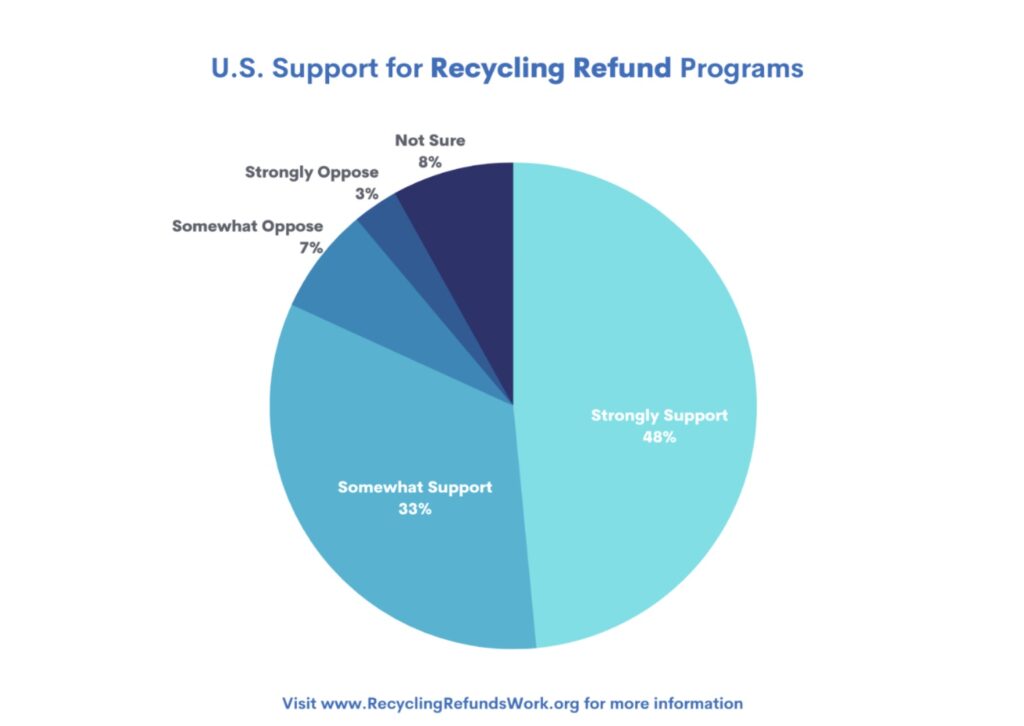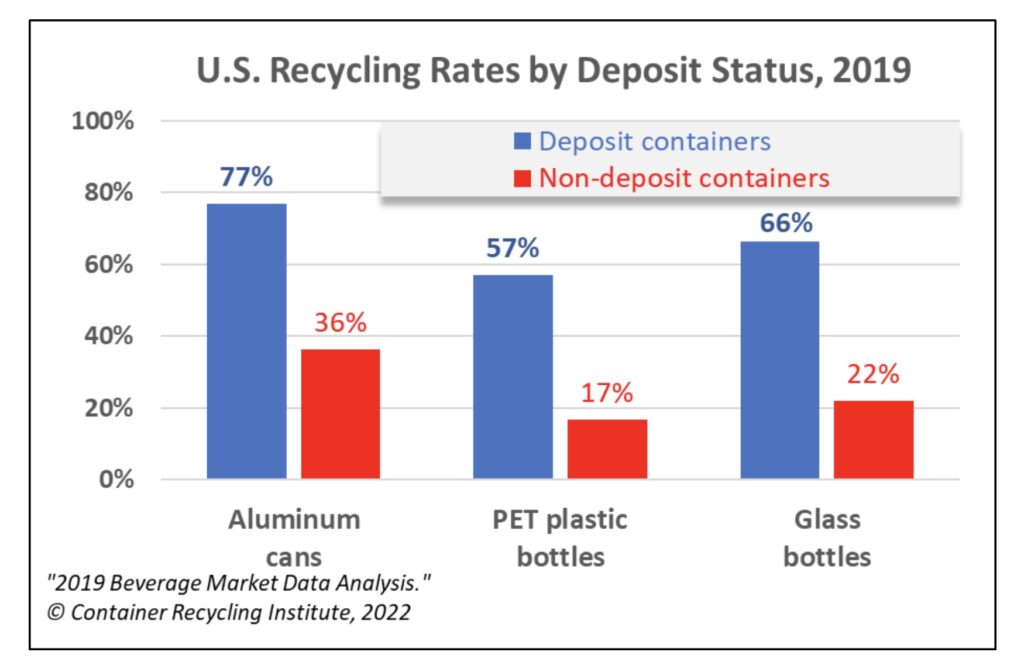A new public opinion poll[1] found that 81% of Americans support recycling refund programs, which place a fully refundable deposit (usually 5 or 10 cents) on beverage containers at the time of purchase that is refunded upon return of the container. Consumers essentially buy the beverage and borrow the container. When the borrowed container is returned, it delivers high quality materials domestically for recycling into new products, including beverage containers.
Support for these programs was strong and consistent across all political and demographic groups, registering at more than 70% for Democrats, Independents and Republicans. Residents of states with existing recycling refund programs displayed the highest level of support at 90%. Currently 10 states plus Guam use recycling refund programs in the United States.

The news comes amidst the launch of an informational microsite – www.RecyclingRefundsWork.org – featuring organizations that have endorsed guiding principles for recycling refund programs and support these programs at the federal and state level. Supporting organizations include the Aluminum Association, American Conservation Coalition, American Consumer Institute, Can Manufacturers Institute, ConservAmerica, Consumer Action, National Consumers League, National Recycling Coalition, Rainey Center Freedom Project, Reloop, U.S. Public Interest Research Group, and Virginia Bottle Bill Organization.
Other key takeaways from the survey include:
- All respondents, no matter the political affiliation (87% of Democrats, 76% of Republicans and 73% of Independents) support recycling refund programs.
- Of those who have redeemed deposits, 69% report that if redeemed at a retail location, they would spend all or some of the deposit refund at the retail location where they received their redemption.
- A majority (72%) of respondents support redemption programs incentivizing companies to use materials with high economic value, such as aluminum beverage cans.
- A majority of voters (more than 72%) say it is important to recycle all types of materials (plastic, metal, glass, paper, multi-layer cartons).
- Respondents believe that reducing litter (78%); enabling reuse of materials (79%); creating jobs (77%); and lowering greenhouse gas emissions (77%) were the primary reasons to support recycling refunds.
“It’s clear that Americans overwhelmingly support efforts to grow the economy, improve recycling and reduce litter and greenhouse gas emissions through recycling refund programs,” said Charles Johnson, president and CEO of The Aluminum Association. “During a time when few public policies enjoy such strong bipartisan support, lawmakers should act – pursuing well-designed recycling refund programs at the state and federal level.”
“Recycling refund programs are an effective, common-sense way to incentivize consumers to recycle,” said Robert Budway, president of Can Manufacturers Institute. “Increasing recycling rates is beneficial in many ways. From reducing litter and keeping recyclable materials out of landfills to reducing greenhouse gas emissions and creating jobs, the benefits of policies that grow recycling are enormous. Not only does data from the United States and the many countries around the world with active recycling refund programs prove they are effective, they are universally popular across party lines. We hope lawmakers across the country will recognize the wisdom of implementing recycling refund programs.”

In recent years, recycling rates across the United States have stagnated. However, beverage containers sold with a deposit are recycled at rates two to three times higher than containers sold without a deposit, according to data from the Container Recycling Institute. The two U.S. states with 10-cent deposits on beverage containers (Michigan and Oregon) often achieve beverage container recycling rates above 85%. Research by Reloop estimated that a national recycling refund program with a 90% redemption rate would create more than 155,000 direct and indirect jobs and would annually avoid greenhouse gas emissions equivalent to taking more than 2.37 million cars off the road.
To learn more about the results of this study and the benefits of recycling refund programs, visit www.RecyclingRefundsWork.org.
For more information visit www.cancentral.com or https://www.aluminum.org.
[1] Lincoln Park Strategies conducted the online survey of 1,000 U.S. adults 18 years or older in June 2022 with a margin of error of ±3.1%.
